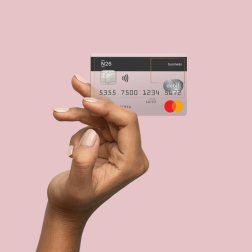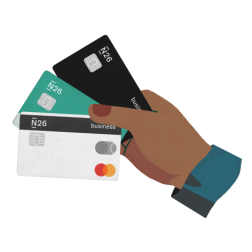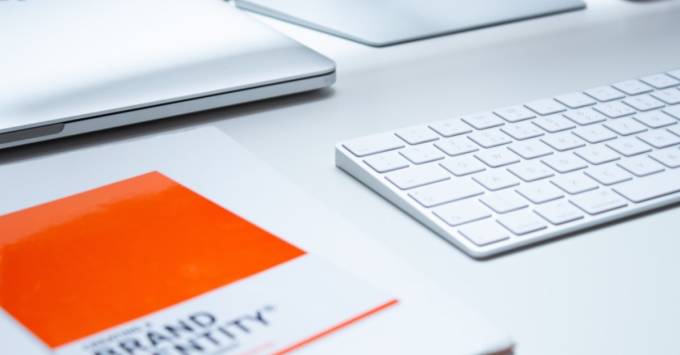
Freelancing in Austria: a Practical Guide
In this guide, find out everything you need to know about being a freelancer in Austria—how to get started, where to look for prospective clients, and much more.
6 min read
Dreaming of flexibility, freedom, and a better work-life balance? Then you might already be considering whether to make the leap to self-employment. And if so, you’ve probably got all kinds of questions about how things work in Austria before you set off on your new life as a freelancer.
But don’t worry: In this guide, we’ll answer your need-to-know questions as a soon-to-be freelancer—from how to get started and where to look for clients to what taxes a freelancer in Austria has to pay. Ready? Let’s dive in!
N26 for business

What does “freelancer” mean?
As a freelancer, you don’t work for a company—you work for yourself. No matter what field you choose for your business, your professional activities are generally done on a contract or project basis.
Being a freelancer comes with some great perks: You can choose the workplace and hours that suit you best, and find your own projects and customers. Plus, there’s no cap on your salary (at least, theoretically). That’s because you keep all your profits for yourself once you’ve paid your taxes. However, you’re also responsible for building up your customer base and maintaining it so you get enough work. And you’re solely responsible for filing your tax return, and paying taxes, health insurance, pension, and other social contributions, as well.
The specific taxes and contributions you need to pay in Austria depend on your self-employment status. Find out more about this in the next section.
Freelancers and self-employment—what’s the difference?
The terms “freelancer” and “self-employed” are often used interchangeably, but there’s actually a distinction among them. It’s pretty simple when you get down to it: If you pursue a profession in Austria independent of an employer, or in other words, you don’t have a fixed employment contract that determines your workplace, salary, and working hours, you’re self-employed. In contrast, the word “freelancer” describes the specific type of working relationship (freelance collaboration vs. employment relationship).
Now, to add just a bit of complexity: The term “freelance professional” (Freiberufler) might also apply to you, depending on the type of professional activity you’re doing. This is because self-employment can be divided into two groups: freelance professions and trades. If your job is one of the freelance professions—artistic or academic professions such as doctors, journalists, interpreters, architects, or musicians—you’re classed as a freelance professional. If your work doesn’t fall under one of these occupational categories—for example, if you’re producing non-artistic items to sell or you run a cafe—you’re considered to be a tradesperson. That means you’re subject to trade regulations. Many self-employed people in Austria are tradespeople—they’re subject to trade regulations and have compulsory insurance with the Sozialversicherung der Selbständigen (self-employed social security).
That said, it’s not always easy to know which is the right category. Thankfully, you’re not responsible for figuring this out alone. When you register as self-employed, the tax office will decide whether your work is classified as a freelance profession or as a trade.
Freelancer Taxes in Austria
The types of taxes in Austria that you need to pay as a freelancer are dependent on the type of work you do, but the amount you pay is based on your annual income. Our tip: Set aside enough money for taxes and other contributions ahead of time so you can avoid nasty surprises down the line.
The two key taxes for freelancers in Austria are income tax and value-added (VAT). Trade tax, which still exists in Germany, was abolished in Austria back in 1994—so you don’t need to worry about that, at least!
Income Tax
The good news: Self-employed workers have a tax-free basic income of €11,000. In other words, you don’t need to pay any income tax at all until your annual profits are more than €11,000. You pay income tax on anything above this. The amount of income tax you pay, in turn, depends on how much you earn each year. If you earn between €11,001 and €18,000, you’ll pay 25% tax, and if you earn between €18,001 and €31,000, you’ll pay a hefty 32.5%.
VAT
In Austria, all companies with an annual turnover of more than €35,000 are subject to VAT. If your annual turnover is less than €35,000, something called the small business rule comes into play, meaning you don’t need to pay VAT. For this to apply, you can’t exceed this annual turnover limit by more than 15%—although you can do this once every five years. That said, you should bear in mind that you can’t claim input tax as a small business, either. All in all, put some thought into what’s the best option for you.
Save up with Spaces

Being a Freelancer in Austria: Initial Steps
Heard enough? Ready to start your new life as a freelancer? We’ve got our fingers crossed for you! To get started, there are actually just five steps you need to complete:
- Decide whether you want to work full-time or part-time as a freelancer and give notice at your job if needed.
- Have a free consultation with the Austrian Economic Chambers (Wirtschaftskammer Österreich—WKO). You can also take part in workshops and training sessions to prepare for your future freelance life.
- Find out if you need to register as a tradesperson. If you do, you can do this online here.
- Register for social security.
- Register with the tax office.
And that’s it! Now you just need your first job. Wondering how you actually find freelancer jobs in Austria? Fear not! We’ve got lots of helpful tips for you here, too—read on to learn more.
Where can I find freelancer jobs in Austria?
There are tried-and-true strategies you can use as a freelancer to gain prospective clients and ultimately find new projects. We recommend starting by building a strong presence on relevant social media channels, building a meaningful portfolio, and setting up a personal website. Plus, there are lots of international freelancer platforms where you can find new jobs, like Fiverr, Freelancer.com, and Upwork. Of course, you can look for work on traditional job boards, as well.
N26 business plans

Your money at N26
Being a freelancer can be pretty complicated. That’s why it’s even more important that organizing your finances is as streamlined as possible. With N26 Business Smart, our smart business account for freelancers, you can manage your finances from your smartphone. And with N26 Business You, you get 0.1% cashback and fee-free global payments—plus travel and theft insurance. Or make a statement with N26 Business Metal and get 0.5% cashback, comprehensive travel insurance, and access to tons of partner offers. Plus, your most important tool for your work—your smartphone—is protected with insurance against theft or damage.
No matter which N26 account you pick, our handy features give you full control over your finances. Thanks to our export feature for your transaction list, even tax returns are now child’s play! Plus, it only takes a few minutes to set up your account. So, what are you waiting for?
FAQs
What´s Freelancing?
Your work as a freelancer is a type of self-employment. Knowledge workers—for example, IT professionals—can earn their living by selling their services on a contract or project basis. Instead of being hired by a company, freelancers can work under various legal forms. They’re responsible for paying their own taxes, pension contributions, and other personal expenses. In simple terms, being a freelancer is equivalent to running a small company.
Why do companies hire freelancers?
Often, companies prefer to hire freelancers instead of new employees if they need to add a very specific skill to their team. Similarly, companies can turn to freelancers if they have a sudden but temporary increase in work volume and/or a specialist project. Plus, hiring regular employees can be pretty pricey for companies. If they hire a freelancer instead, they can fill a vacancy quicker, easier and, above all, cheaper.
How can you work from home as a freelancer?
Anyone can become a freelancer—you just need to have skills that are in demand. When you’re getting started, invest some time in working out your unique selling points (USPs) and defining your target group and your niche. This will help to set you up for success as a freelancer.
Can you work as a freelancer alongside being employed?
Yes! You can actually work as a freelancer alongside your studies or a full-time job. Lots of freelancers choose this option to avoid periods of financial difficulty or to gradually build up their portfolio and customer base. Even though you need a lot of dedication and discipline, freelancing while also working as an employee is a good way to transition to profitable self-employment and slowly but surely become your own boss.
Are all freelancers self-employed?
Most freelancers decide to be sole traders (self-employed) because it’s the easiest and cheapest option for newbies. That said, there are other legal forms you can consider as a freelancer, like a limited liability entrepreneurial company (haftungsbeschränkte Unternehmergesellschaft, or UG). Find out more about these various legal forms and how to register your freelance business in this article.
How can I calculate my daily freelance rate?
When you’re just starting out, it’s easiest to calculate your daily rate on the basis of your last salary. You can use the following formula as a starting point: (your annual salary + 30%) divided by 220 days. The extra 30% is to make up for benefits like vacation, sick pay, or pension contributions. Similarly, the 220 days are an estimate of the total days you’ll likely work in a year. Find out more about how much freelancers earn, on average, in this article.
Do freelancers need to register as a company?
Yes, it’s crucial to register in Austria as a freelancer. When you start working for yourself, you’re automatically classed as a sole trader (self-employed). And regardless of when you inform your local tax office, you’ll be obligated to pay taxes on all your freelance income. Find out everything you need to know here about registering your own company.
Do freelancers need a business account?
As a freelancer, you’re not legally obliged to have a separate business account but many do, anyway. Separating your business and personal finances helps you to track your income and expenses better as a freelancer—plus, it makes your tax return easier. Our N26 Business You account for freelancers offers premium perks, like 0.1% cashback on all purchases and free online card payments. N26 Business Metal gives you even more—with 0.5% cashback!
What’s the difference between a personal bank account and a business one?
The major difference between a personal bank account and a business account is what it’s used for. As the name suggests, personal bank accounts are designed for personal, day-to-day use. Conversely, business accounts are only intended for business transactions. A business account gives you a better overview of your business expenses and enables you to store the relevant receipts more easily. This blog post tells you more about the differences between these two kinds of accounts.
What freelancing websites are best for beginners?
Online platforms for freelancers are a great way to find jobs and expand your skills and portfolio. Among the most well-known platforms for freelancers are Fiverr, Smartjobr, Twago, and Freelance.de. Each platform has its pros and cons, and it’s generally best to sign up to more than one platform to maximize your reach. Read more in our overview article: the 4 best freelancer platforms for expanding your business.
How can you build your own brand as a freelancer?
As a freelancer, you’re the face of your brand. Defining and carefully building up your personal brand is one of the most effective, long-term growth strategies to steer your company to success. Start by working out what makes you different from other freelancers. Then, you can communicate this via your website, email signatures, and all other media. Find out more information in our guide to personal branding for freelancers.
What skills do I need to develop to work as a freelancer?
Some skills are more in demand than others in the world of freelancing. As a newbie, it’s key to stay up to date with trends in your sector so that you know what clients will expect. If you’re thinking about stepping into self-employment, you probably already have a strong skill-set in a particular area. Skills in demand at the moment include web development, design, and copywriting. Here’s our list of skills that could help you as a freelancer.
How to draw up a freelancer contract
Before starting a new project, it’s a good idea to take the time to draw up your freelancer contract and the payment terms. You can then send these details to your customer for their approval or signature. Your agreement should also include information on the project scope and deadlines. There are lots of free templates online for freelancers that you can use for your business.
How can you attract customers as a freelancer?
There are tried-and-true strategies you can use as a freelancer to find prospective clients and get new projects. We recommend starting by building a strong presence on relevant social media channels, building a meaningful portfolio, and setting up a personal website.
What’s the best project management tool?
There’s no single piece of software that’s perfect for managing all freelance projects. That said, many freelancers recommend Trello, Asana, and Wrike as handy tools for organizing your work.
How can I get paid as a freelancer?
Getting paid for your work as a freelancer is pretty straightforward. The usual method is to issue an invoice for the hours you’ve worked or the projects you’ve completed. However, some freelancers go a step further and make the payment process even easier by accepting card payments and direct debits.
How much tax do freelancers need to pay?
Your tax rate depends on your taxable business income and the country you work in. In Austria, it’s generally worth drawing up a budget for your taxes and setting aside 25 to 30 percent of your total income as a freelancer.
Can students work as freelancers?
For sure! You can start freelancing at any time. Working as a freelancer alongside your studies is a great way to earn some money on the side and develop useful skills for your future career.
How do you write invoices as a freelancer?
Make sure you’re writing your invoices correctly so you can be paid on time. The best approach is to use a simple design that clearly lists all the important information. You should include basic information like the names and contact information of both parties, as well as an itemized list of services and their costs. There are lots of free templates online.
How can you advertise your services as a freelancer?
One of the simplest ways to advertise your services is to publish your profile on freelance job portals and share stories and posts on the appropriate social networks. You could also turn to content marketing strategies like website optimization. Or, use word of mouth—it can be as simple as emailing your contacts about your availability and asking them to pass your name on.
How can you find work online as a freelancer?
Lots of freelancers turn to freelance platforms and job portals when looking for new customers and projects. LinkedIn is another place to find freelance jobs, and it’s growing in popularity. Depending on your services, other social media platforms can also be good starting points for getting your portfolio out there. If you’re a photographer, for instance, Instagram is perfect for sharing your best photos.
Can you get a credit card as a freelancer?
The uncertainties around your income and the difficulty in planning new projects mean that it’s usually not advisable to use credit cards if you’re a freelancer. However, once your workload has stabilized, there’s nothing stopping you from applying for a credit card for professional or personal use.
How do you end a business relationship as a freelancer?
If you want to end a business relationship with a customer, you need to check your contract in advance and make sure you give sufficient notice. You don’t need to explain to your customer why you want to end your collaboration. That said, we recommend ending things on good terms, not burning any bridges, and giving them some brief reasons and an end date.
Can freelancers take out loans?
The short answer is yes. However, you need to bear in mind that different lenders have different rules and criteria. Take time to read the terms and conditions. Lots of freelancers need to make a larger down-payment than usual before being granted a loan.
Do freelancers need insurance?
Taking out the right insurance can help you protect yourself from errors, omissions, and any other kinds of issues with your services as a freelancer. The two most common options are business liability insurance and professional liability insurance. That said, there are other kinds of insurance out there—like personal property coverage or legal protection insurance. They can also be a wise option for freelancers, depending on the situation.
Find similar stories
By N26
Love your bank
How to start your own business
7 min read
Related posts
These might also interest youHow much do freelancers make? A guide to the average freelancer salary
Salary is a big consideration when thinking about going freelance. Read our guide to find out average hourly rates for a number of industries.
Why is personal branding important: Top tips for your freelance business
Branding is a great way to define your freelancing business. Follow our helpful personal branding tips to build your successful freelance business.
4 of the best freelance platforms to support & grow your business
Freelance platforms are a great way to find new projects and build your client base. We’ve selected our top freelance platforms to help.


